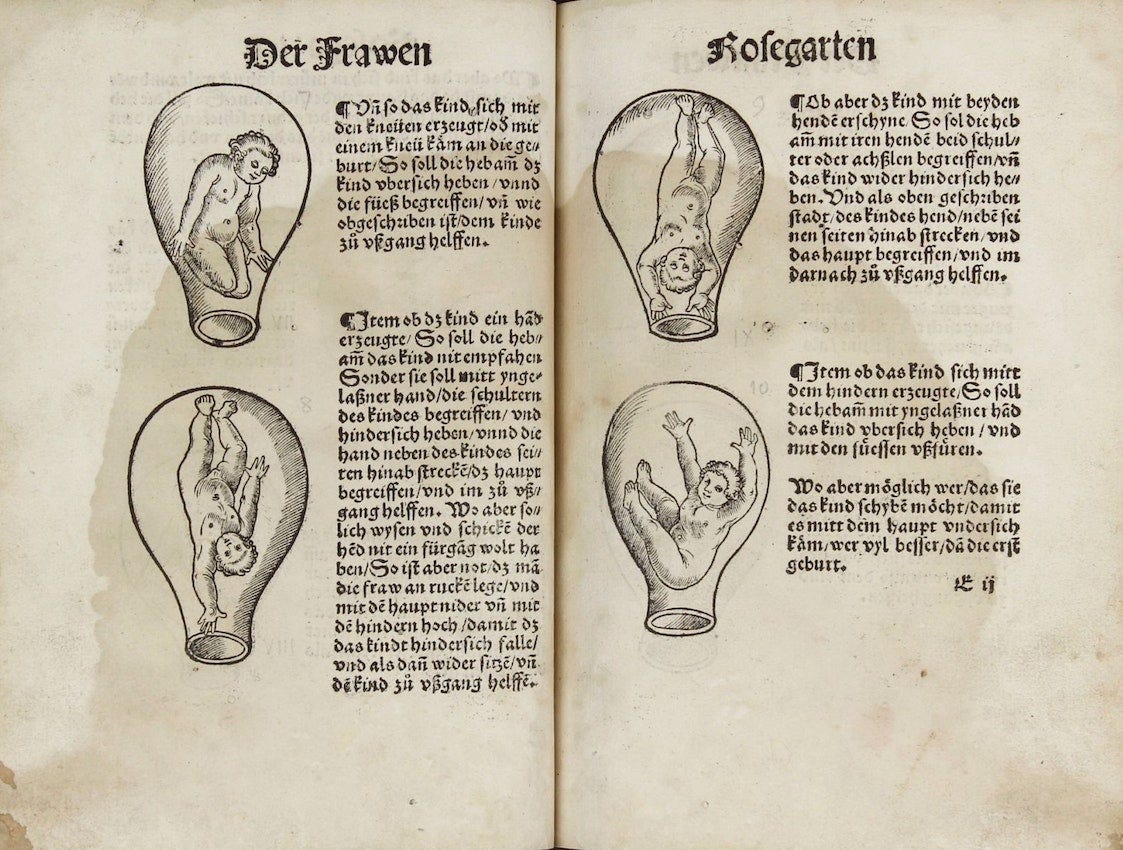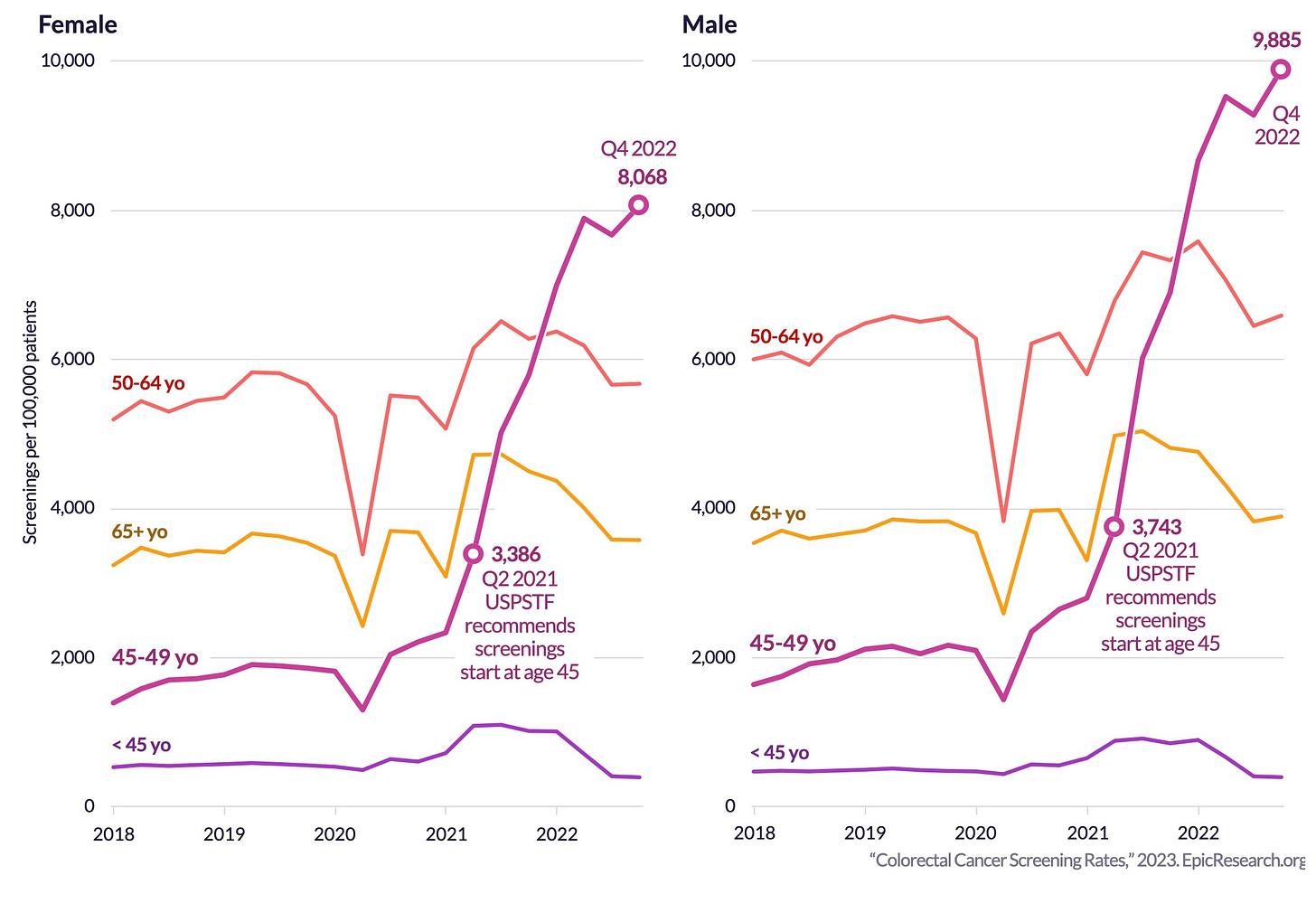Digital Exhaust #186
Protein emoji, medieval diapers and why digital health startups should terrify you
You’ve opened Digital Exhaust, a 33 charts weekly digest. Browse below for interesting stuff. As usual, the letter has a tech focus with attention to humans.
Some weeks I’m lukewarm on what I find. This week was a good week. I hope you enjoy some of this stuff as much as I did.
CBS health contributor Dr. David Agus headlines Plagiarism Today
According to Plagiarism Today, Dr. David Agus, USC professor and contributor for CBS News, had his new book withdrawn over 95 incidents of plagiarism. Not exactly the kind of press you’re looking for on the week of you book release. More concerning than the fact that he glibly acknowledged his transgressions is the fact that there’s a thriving publication called ‘Plagiarism Today.’
Why we need a protein emoji
As reported in Nature, Scientist Andrew White submitted a bid for the creation of a protein emoji. He shares his motivation and what he learned from the submission process — which was ultimately unsuccessful. The emoji submission process is interesting. Sort of.
The ethics of curing medical misinformation
“I believe that misinformation is now our leading cause of death,” US Food and Drug Administration Commissioner Robert Califf tweeted in April 2022, “and we must do something about it.” Califf’s diagnosis of misinformation raises several provocative questions about the impulsive drive to squash what we don’t like, or think isn’t correct. An unexpected and interesting angle in the AMA Journal of Ethics.
Work on things that no one has a word for
Kevin Kelly may be one of this generation’s greatest tech visionaries. If you’re anywhere near technology or you think about where all of this is headed, you need to read this amazing interview with Kelly by
.I particularly liked his career advice for young people:
My generic career advice for young people is that if at all possible, you should aim to work on something that no one has a word for. Spend your energies where we don’t have a name for what you are doing, where it takes a while to explain to your mother what it is you do. When you are ahead of language, that means you are in a spot where it is more likely you are working on things that only you can do. It also means you won’t have much competition.
I have read most of Kelly’s books, and particularly love The Inevitable and What Technology Wants. I’ll be reading his new book coming out in May.
Why digital health startups should terrify you
In TechCrunch of all places,here’s why digital health startups should terrify you.
This week’s example of glowing startup citizenship comes from Cerebral which has shared the private health information, including mental health assessments, of more than 3.1 million patients in the United States with advertisers and social media giants like Facebook, Google and TikTok.
Oh, and I almost forgot. They’re under investigation by the DEA and DOJ for ‘prescribing’ fast and loose with Adderall and Xanax.
Maybe I’m being unfair to the sensitive startup set. This investigation from June shows some hospitals are selling your data to Meta as well.
Is AI as dangerous as a nuclear warhead?
Beyond AI hype is the growing market for counter-AI hype. Now don’t judge me: I’m a secret fan of the Center for Humane Technology. And this week Tristan Harris and Aza Raskin (they run the center) suggested that AI is as dangerous as nuclear weapons. A little too much, I think, but it got them ink in Wired.
The future of medicine is not in plastics
As reported by Motherboard/Vice, Chronic pain patients were implanted with “dummy” pieces of plastic and told it would ease their pain, according to an indictment charging the former CEO of the firm that made the fake devices with fraud.
File under medical history
It’s a little known fact that I contemplated a career in medical history — several grad courses in Boston in the late ’80s. But I deviated instead into making medical history, which has yet to materialize. I still love reading about history — those of you who have been subscribers for years have probably noticed that. I stumbled on a couple of goodies this week:
Medieval diapers. I couldn’t resist this one as a pediatrician. How people cared for babies in the Middle Ages.
Really old uteri. And there’s this interesting nugget: Picturing pregnancy in early modern Europe. The interesting history is surpassed only by the images.
Clip art and desks as a lens on society
Not medical, but this history of clip art is kinda cool. Clip art rose to ubiquity in the 1950s. Over the years, it became a mirror for the conversations happening in society.
And I never knew this, but traditionally desks never faced walls. About 20 years ago people started working on computers regularly and now all desks face walls. Via the unflappable Paul Skallas.
Things that went bump in medicine
Telehealth enjoyed a teeny bump in November-December.
Epic research shows a big ‘ol bump in colorectal screening following the new U.S. Preventative Services Task Force (USPSTF) recommendations.
MIT Technology Review on how to log off
All the usual strategies, but always worth revisiting.
Sense making: A key leadership competency in times of change
I’ll wrap with this quote from Finnish management guru Esko Kilpi:
The fundamental problem today: the speed embedded in our institutional frameworks vs. the speed of technological change. The key management capability is not being in control, but to participate and influence the formation of sense making and meaning. It is about creating a context that enables connectedness, interaction and trust between people.
Love it. We don’t spend enough time thinking about how today’s leadership challenges are really different.
Thanks again for reading. If you like the letter please pass it along to someone who might like it.







Great links! I’m in the trenches cranking out the GI referrals, fast track colonoscopies, and Cologaurd orders, consistent with current guidelines. Glad to see that on a larger scale people are listening.